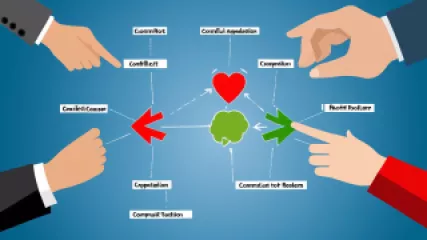Unleash Mindful Moments: Lessons from "The Zen of Wallowing"
1 anno fa
Consapevolezza nelle Routine Quotidiane
Top 10 Conflict Resolution Techniques You Need to Know
1 anno fa
Gestione dei Conflitti
How to Cultivate Mindful Self-Care Practices
1 anno fa
Cura di Sé
Mastering Attachment Styles: A Step-by-Step Guide to Self-Understanding
1 anno fa
Stili di Attaccamento
The Ultimate Guide to Attachment Styles
1 anno fa
Stili di Attaccamento
Exploring the Power of Drama Therapy for Couples: An Interview with Jane Doe
1 anno fa
Drammaterapia
10 Best Virtual Conflict Resolution Tools for Effective Conflict Management
1 anno fa
Gestione dei Conflitti
10 Best Mindfulness Meditation Practices for Emotional Well-Being
1 anno fa
Meditazione Consapevole
Learning from Fiction: Suicide Prevention Insights from Books and Movies
1 anno fa
Prevenzione del Suicidio
Top 10 Schizophrenia Therapists Online
1 anno fa
Schizofrenia
The Ultimate Guide to Drama Therapy for Communication Skills
1 anno fa
Drammaterapia
How Can I Improve My Conflict Management Skills with Effective Coaching?
1 anno fa
Gestione dei Conflitti
Coping with Loss: My Journey Through Digital Bereavement Therapy
1 anno fa
Lutto
Essential Schizophrenia Therapy Tools
1 anno fa
Schizofrenia















